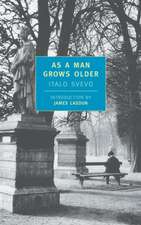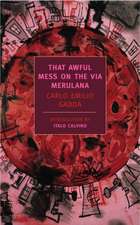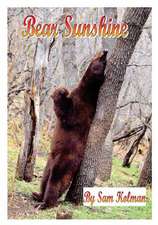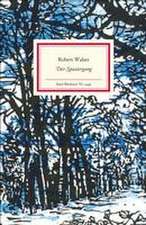A Schoolboy's Diary: And Other Stories: New York Review Books Classics
Autor Robert Walseren Limba Engleză Paperback – 9 oct 2013
Din seria New York Review Books Classics
-
 Preț: 88.86 lei
Preț: 88.86 lei -
 Preț: 99.24 lei
Preț: 99.24 lei - 16%
 Preț: 79.25 lei
Preț: 79.25 lei -
 Preț: 77.73 lei
Preț: 77.73 lei -
 Preț: 124.55 lei
Preț: 124.55 lei -
 Preț: 98.73 lei
Preț: 98.73 lei -
 Preț: 83.30 lei
Preț: 83.30 lei -
 Preț: 182.63 lei
Preț: 182.63 lei -
 Preț: 102.47 lei
Preț: 102.47 lei -
 Preț: 76.46 lei
Preț: 76.46 lei -
 Preț: 174.64 lei
Preț: 174.64 lei -
 Preț: 110.73 lei
Preț: 110.73 lei -
 Preț: 119.57 lei
Preț: 119.57 lei -
 Preț: 94.01 lei
Preț: 94.01 lei -
 Preț: 119.36 lei
Preț: 119.36 lei -
 Preț: 101.24 lei
Preț: 101.24 lei -
 Preț: 85.97 lei
Preț: 85.97 lei -
 Preț: 142.67 lei
Preț: 142.67 lei -
 Preț: 102.25 lei
Preț: 102.25 lei -
 Preț: 103.29 lei
Preț: 103.29 lei -
 Preț: 113.30 lei
Preț: 113.30 lei -
 Preț: 100.59 lei
Preț: 100.59 lei -
 Preț: 126.41 lei
Preț: 126.41 lei -
 Preț: 107.40 lei
Preț: 107.40 lei -
 Preț: 174.03 lei
Preț: 174.03 lei -
 Preț: 107.44 lei
Preț: 107.44 lei -
 Preț: 89.27 lei
Preț: 89.27 lei -
 Preț: 85.34 lei
Preț: 85.34 lei -
 Preț: 90.09 lei
Preț: 90.09 lei -
 Preț: 96.42 lei
Preț: 96.42 lei -
 Preț: 99.60 lei
Preț: 99.60 lei -
 Preț: 85.16 lei
Preț: 85.16 lei -
 Preț: 127.42 lei
Preț: 127.42 lei -
 Preț: 87.20 lei
Preț: 87.20 lei -
 Preț: 136.91 lei
Preț: 136.91 lei -
 Preț: 105.17 lei
Preț: 105.17 lei -
 Preț: 161.86 lei
Preț: 161.86 lei -
 Preț: 90.72 lei
Preț: 90.72 lei -
 Preț: 88.86 lei
Preț: 88.86 lei -
 Preț: 94.83 lei
Preț: 94.83 lei -
 Preț: 120.63 lei
Preț: 120.63 lei -
 Preț: 133.18 lei
Preț: 133.18 lei -
 Preț: 95.45 lei
Preț: 95.45 lei -
 Preț: 97.50 lei
Preț: 97.50 lei -
 Preț: 81.66 lei
Preț: 81.66 lei -
 Preț: 111.96 lei
Preț: 111.96 lei -
 Preț: 100.18 lei
Preț: 100.18 lei -
 Preț: 75.23 lei
Preț: 75.23 lei -
 Preț: 91.13 lei
Preț: 91.13 lei -
 Preț: 94.67 lei
Preț: 94.67 lei
Preț: 82.24 lei
Nou
Puncte Express: 123
Preț estimativ în valută:
15.74€ • 16.47$ • 13.02£
15.74€ • 16.47$ • 13.02£
Carte disponibilă
Livrare economică 15-29 martie
Livrare express 01-07 martie pentru 26.26 lei
Preluare comenzi: 021 569.72.76
Specificații
ISBN-13: 9781590176726
ISBN-10: 1590176723
Pagini: 179
Ilustrații: black & white line drawings
Dimensiuni: 127 x 201 x 15 mm
Greutate: 0.25 kg
Editura: NEW YORK REVIEW OF BOOKS
Seria New York Review Books Classics
ISBN-10: 1590176723
Pagini: 179
Ilustrații: black & white line drawings
Dimensiuni: 127 x 201 x 15 mm
Greutate: 0.25 kg
Editura: NEW YORK REVIEW OF BOOKS
Seria New York Review Books Classics
Notă biografică
Robert Walser (1878ߝ1956) was born into a German speaking family in Biel, Switzerland. He left school at fourteen and led a wandering, precarious existence while writing his poems, novels, and vast numbers of the “prose pieces” that became his hallmark. In 1933 he was confined to a sanatorium, which marked the end of his writing career. Among Walser’s works available in English are Berlin Stories and Jakob von Gunten (both available as NYRB classics), Thirty Poems, The Walk, The Tanners, Microscripts, The Assistant, The Robber, Masquerade and Other Stories, and Speaking to the Rose: Writings, 1912ߝ1932.
Damion Searls has translated many classic twentieth century writers, including Proust, Rilke, Elfriede Jelinek, Christa Wolf, Hans Keilson, and Hermann Hesse. For NYRB Classics, he edited Henry David Thoreau’s The Journal: 1837ߝ1861, translated Nescio’s Amsterdam Stories, and will retranslate André Gide’s Marshlands. He has received Guggenheim, National Endowment for the Arts, and Cullman Center fellowships and is currently writing a book about Hermann Rorschach and the cultural history of the Rorschach test.
Ben Lerner is the author of three books of poetry and a novel, Leaving the Atocha Station. He has been a finalist for the National Book Award in poetry, a Fulbright Scholar in Spain, and a fellow of the Howard and Guggenheim Foundations.
Damion Searls has translated many classic twentieth century writers, including Proust, Rilke, Elfriede Jelinek, Christa Wolf, Hans Keilson, and Hermann Hesse. For NYRB Classics, he edited Henry David Thoreau’s The Journal: 1837ߝ1861, translated Nescio’s Amsterdam Stories, and will retranslate André Gide’s Marshlands. He has received Guggenheim, National Endowment for the Arts, and Cullman Center fellowships and is currently writing a book about Hermann Rorschach and the cultural history of the Rorschach test.
Ben Lerner is the author of three books of poetry and a novel, Leaving the Atocha Station. He has been a finalist for the National Book Award in poetry, a Fulbright Scholar in Spain, and a fellow of the Howard and Guggenheim Foundations.
Recenzii
“Everyone who reads Walser falls in love with him.” —Nicholas Lezard, The Guardian
“A Paul Klee in prose, a good-humored, sweet Beckett, Walser is a truly wonderful, heartbreaking writer. In Walser’s fictions one is always inside a head, but this universe— and this despair—is anything but solipsistic. It is charged with compassion: awareness of the creatureliness of life, of the fellowship of sadness.” —Susan Sontag
“ Was Walser a great writer? If one is reluctant to call him great, said Canetti, that is only because nothing could be more alien to him than greatness.” —J. M. Coetzee, The New York Review of Books
“Robert Walser moves me more and more. . . . He is truthful without making a frontal attack on the truth, he becomes truth by walking around it.” —Elias Canetti
“To his eye, everything is equal; to his heart, everything is fresh and astonishing; to his mind, everything presents a pleasant puzzle. Diversion is his principal direction, whim his master, the serendipitous substance of his daily routine.” —William Gass
“If he had a hundred thousand readers, the world would be a better place.” —Hermann Hesse
“The magnificently humble. The enormously small. The meaningfully ridiculous. Robert Walser’s work often reads like a dazzling answer to the question, How immense can modesty be? If Emily Dickinson made cathedrals of em dashes and capital letters and the angle of winter light, Walser accomplishes the feat with, well, ladies’ feet and trousers, and little emotive words like joy, uncapitalized.” —Rivka Galchen, Harper’s Magazine
“A writer of considerable wit, talent and originality...recognized by such impressive contemporaries as Kafka, Brod, Hesse and Musil...[and] primarily known to German literary scholars and to English readers lucky enough to have discovered [his work]...[Walser’s tales] are to be read slowly and savored...[and] are filled with lovely and disturbing moments that will stay with the reader for some time to come.” —Ronald De Feo, The New York Times
“A clairvoyant of the small.” —W. G. Sebald
“The incredible shrinking writer is a major twentieth-century prose artist who, for all that the modern world seems to have passed him by, fulfills the modern criterion: he sounds like nobody else.” —Benjamin Kunkel, The New Yorker
“A Paul Klee in prose, a good-humored, sweet Beckett, Walser is a truly wonderful, heartbreaking writer. In Walser’s fictions one is always inside a head, but this universe— and this despair—is anything but solipsistic. It is charged with compassion: awareness of the creatureliness of life, of the fellowship of sadness.” —Susan Sontag
“ Was Walser a great writer? If one is reluctant to call him great, said Canetti, that is only because nothing could be more alien to him than greatness.” —J. M. Coetzee, The New York Review of Books
“Robert Walser moves me more and more. . . . He is truthful without making a frontal attack on the truth, he becomes truth by walking around it.” —Elias Canetti
“To his eye, everything is equal; to his heart, everything is fresh and astonishing; to his mind, everything presents a pleasant puzzle. Diversion is his principal direction, whim his master, the serendipitous substance of his daily routine.” —William Gass
“If he had a hundred thousand readers, the world would be a better place.” —Hermann Hesse
“The magnificently humble. The enormously small. The meaningfully ridiculous. Robert Walser’s work often reads like a dazzling answer to the question, How immense can modesty be? If Emily Dickinson made cathedrals of em dashes and capital letters and the angle of winter light, Walser accomplishes the feat with, well, ladies’ feet and trousers, and little emotive words like joy, uncapitalized.” —Rivka Galchen, Harper’s Magazine
“A writer of considerable wit, talent and originality...recognized by such impressive contemporaries as Kafka, Brod, Hesse and Musil...[and] primarily known to German literary scholars and to English readers lucky enough to have discovered [his work]...[Walser’s tales] are to be read slowly and savored...[and] are filled with lovely and disturbing moments that will stay with the reader for some time to come.” —Ronald De Feo, The New York Times
“A clairvoyant of the small.” —W. G. Sebald
“The incredible shrinking writer is a major twentieth-century prose artist who, for all that the modern world seems to have passed him by, fulfills the modern criterion: he sounds like nobody else.” —Benjamin Kunkel, The New Yorker

















